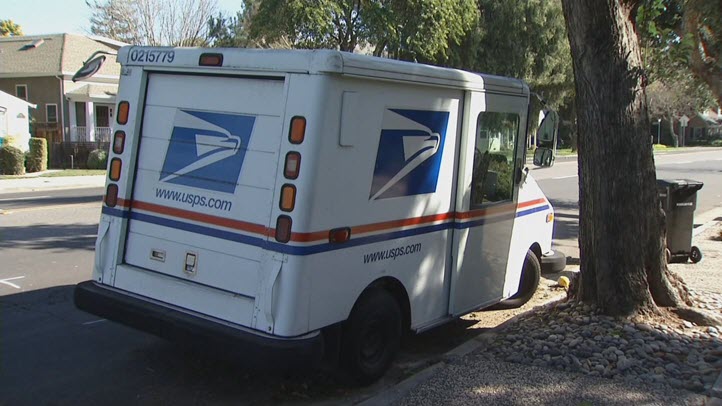Southern California lawmaker Rocky Chavez finds Donald Trump's views on trade with Mexico so ill-informed, his statements about women so derogatory, his support of torture so dangerous that he cannot see himself ever supporting his party's presumptive nominee for president.
"His depictions of Latinos I found very offensive," said Assemblyman Chavez, a Marine Corps veteran whose district includes the corps' Camp Pendleton. "His view of world politics scares me. That's going to take military lives."
Chavez is among Republican Latinos who are rejecting Trump outright, appalled by what he says and worried that he is endangering advances they have made in bringing other Latinos into the GOP. He said he would work to elect other Republicans on the ballot in California but not Trump.
Trump wasn't Jacob Monty's first choice for president, not even his second, but the Houston-based immigration lawyer will raise money for the billionaire businessman.
"At first blush it may sound weird," Monty conceded. "I'm a Latino activist, and I'm concerned about immigration reform yet I'm whole heartedly supporting him."
Not only is he convinced that Trump's deportation threats are so much bombast but he is hopeful that a president from the right might convince Republicans to overhaul immigration laws, much as President Richard Nixon was able to establish relations with Communist China, he said.
"He would have the credentials to convince Republicans, 'Hey this time we're serious guys, I'm behind it, I'm going to get it done,'" Monty said of his fellow Republican.
Local
Across the country, Hispanic Republicans like Chavez and Monty are grappling with Trump's candidacy, forced to choose between ignoring his many insults to support the GOP or standing up for their heritage and forgoing party loyalty.
Trump's campaign did not respond to NBC's questions for this article about how the campaign was reaching out to Latinos but told The Associated Press it was early to talk about.
"Any demographic that is growing at the rate of the Latino voters obviously will be of the utmost importance to a presidential campaign," Trump aide Ed Brookover told the AP.
Trump began appealing to anger over immigration the moment he declared his candidacy, singling out Mexicans in particular in comments many have called racist.
"They’re bringing drugs," he said. "They're bringing crime. They're rapists. And some, I assume, are good people."
He tweeted that Jeb Bush "has to like the Mexican illegals" because of his Mexican-born wife. He insists that if elected, he would build a wall on the Mexico-U.S. border that Mexico would pay for. He promises to deport all 11 million undocumented immigrants in the United States.
And the put-downs continue. He charged that New Mexico Gov. Susana Martinez, a rising GOP star of Mexican heritage, was doing a poor job after she refused to appear at a rally with him. And he accused U.S. District Judge Gonzalo Curiel, who is presiding over lawsuits against Trump University, of having a conflict of interest because his parents were Mexican immigrants.
Prominent Republicans are warning him to drop his attacks against the judge.
"I think it's a big mistake for our party to write off Latino Americans," the Senate majority leader, Mitch McConnell said on "Meet the Press" on Sunday. "They're an important part of our country."
Supporter Newt Gingrich, the former House speaker, called the Curiel comments Trump's "worst mistake" and "inexcusable."
Trump's behavior is causing turmoil within the Republican National Committee. Ruth Guerra, the committee’s director of Hispanic communications, resigned last week because according to The New York Times she was uncomfortable working to elect him. Her replacement, Helen Aguirre Ferre, a former aide to Jeb Bush, said in a statement that she was eager to make the case of Republican values to the Hispanic community, but reporters immediately found critical comments she had made about Trump on Spanish-language television programs and on Twitter.
Hispanic Republicans are "caught in 2016 meat grinder" she wrote in a tweet that has since been deleted.
Two of Trump's former competitors — Cuban-American U.S. Sens. Marco Rubio of Florida and Ted Cruz of Texas — are taking different tacks after losing to him. Rubio, who during the primary called Trump a "lunatic," now says he would be honored to speak on Trump's behalf at the Republican convention in July. Cruz, who described Trump as "a narcissist at a level I don't think this country has ever seen," plans to take his fight for a conservative agenda to the convention.
Massey Villarreal, the president of Houston-based business management company Precision Task Group, had vowed never to support Trump -- when there were still 17 Republicans running for the nomination.
Now the son of a Mexican immigrant says that he would consider Trump if it were in the best interest of the Latino community but that Trump needs to meet with conservative Latino leaders to explain his rhetoric. He has been using immigrants as a wedge issue to scare people to the polls, Villarreal said.
"The only way to hold people accountable is to be in the game and not from the outside," he said. "I would entertain bringing leaders together to see if there's a middle ground."
Art Martinez de Vara, a Texas lawyer and a chief of staff for state Sen. Konni Burton, said that Latinos who do support Trump were weighing more than immigration — foreign policy and the economy, for example.
"Their rallying cry around here seems to be, 'Hold your nose and vote for Trump,'" he said.
Mexican-Americans in Texas view immigration differently from many in Washington, D.C., he said, by supporting guest worker programs, for example.
Sixty-three percent of the Hispanic population in the United States was Mexican-American, according to the U.S. Census Bureau in a 2010 report. But many Republican consultants and leaders are Cuban-Americans, a group that faces easier immigration regulations, Martinez de Vara noted.
Martinez de Vara, who backed Cruz, said he supported security at the U.S.-Mexico border but argued that a wall would represent a massive confiscation of private property, a big-government, big-spending project. He said he was still deciding what to do. Hillary Clinton's policies would be disastrous for the economy, he said, and Trump, though far more conservative than Clinton, falls short on fiscal issues.
"If you're a tried and true conservative and believe in limited government, a lot of the things we hear from Mr. Trump are concerning," he said.
Polls released last month show Trump getting less than a quarter of the Hispanic vote — 20 percent in one from NBC News/Wall Street Journal/Marist Polling Institute. Former Massachusetts Gov. Mitt Romney, who was widely criticized after saying he favored "self-deportation" for undocumented immigrants, got 27 percent of the Latino vote in the 2012 presidential race.
After Romney's defeat, the Republican National Committee conducted an autopsy to find ways to turn around the party's fortunes. Among the key recommendations: Extensive outreach to minorities, including Hispanics, and championing comprehensive immigration reform.
"If we do not, our party's appeal will continue to shrink to its core constituencies only," the Growth and Opportunity Project said.
But Mike Madrid, a GOP political consultant in Sacramento, who looks at Latino voting trends, said he worried that Trump's repeated insults would chase Hispanics from the Republican party for at least of generation.
It is a lost opportunity for Republicans because Latinos are not locked into the Democratic party, he said, though they remain overwhelmingly Democratic.
In 2014 congressional races across the country, Democrats took the Latino vote 62 percent to 36 percent, though in some states Republicans won with more than 40 percent of the Latino vote, the Pew Research Center found.
"At the same time you've got a candidate who's leaving Latino voters with no other choice but to go to the Democratic party because of his rhetoric on things like immigration," Madrid said.
The candidate most appealing to young Latinos is Vermont Sen. Bernie Sanders, a reflection of age rather than ethnicity, he said. A record 27.3 million Hispanics are expected to be eligible voters this year, 44 percent of them millennials, according to the Pew Research Center. Nearly one in three voters will be Hispanic, black, Asian or from another racial or ethnic minority, it reported. Much of the change is due to growth among Hispanic voters, a demographic shift that is expected to continue for decades.
California, which holds its presidential primaries on Tuesday, has more Latinos than any other state followed by Texas and Florida, according to the Pew Research Center. More than half of the U.S. Hispanic population lives in those three states.
Ron Garcia, a former mayor of Brea City in Orange County, California, and a founding member of the Southern California Latino Policy Center, said that the Democratic party takes the Latino vote for granted while the Republican party has given up appealing to Hispanics. Latinos are not served well by either party, he said.
"Unfortunately I know a lot of Latinos that would vote conservative but the rhetoric the Republican party puts out in regards to people of Hispanic ethnicity, it offends them although most of them are really anti illegal immigration," he said.
Hispanics are conservative by culture on social issues, but Trump has brought the Latinos together in their opposition to the Republican agenda, he said. He has alienated them with his divisive language though he could be the candidate that would bring jobs, he said.
"I think that Mr. Trump as a president would be a favorable thing for the Latino community," he said. "I really do believe that."



